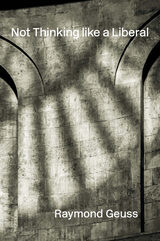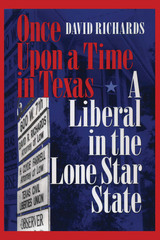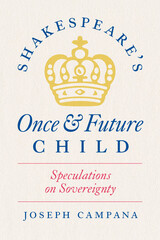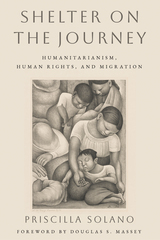
In a compelling meditation on the ideas that shape our lives, one of the world’s most provocative and creative philosophers explains how his eccentric early years influenced his lifelong critique of liberalism.
Liberalism is so amorphous and pervasive that for most people in the West it is background noise, the natural state of affairs. But there are nooks and crannies in every society where the prevailing winds don’t blow. Raymond Geuss grew up some distance from the cultural mainstream and recounts here the unusual perspective he absorbed: one in which liberal capitalism was synonymous with moral emptiness and political complacency.
Not Thinking like a Liberal is a concise tour of diverse intellectual currents—from the Counter-Reformation and communism to pragmatism and critical theory—that shaped Geuss’s skeptical stance toward liberalism. The bright young son of a deeply Catholic steelworker, Geuss was admitted in 1959 to an unusual boarding school on the outskirts of Philadelphia. Outside was Eisenhower’s America. Inside Geuss was schooled by Hungarian priests who tried to immunize students against the twin dangers of oppressive communism and vapid liberal capitalism. From there Geuss went on to university in New York in the early days of the Vietnam War and to West Germany, where critical theory was experiencing a major revival.
This is not a repeatable journey. In tracing it, Geuss reminds us of the futility of abstracting lessons from context and of seeking a universal view from nowhere. At the same time, he examines the rise and fall of major political theories of the past sixty years. An incisive thinker attuned to both the history and the future of ideas, Geuss looks beyond the horrors of authoritarianism and the shallow freedom of liberalism to glimpse a world of genuinely new possibilities.

Once upon a time in Texas...there were liberal activists of various stripes who sought to make the state more tolerant and more tolerable. David Richards was one of them. In this fast-paced, often humorous memoir, he remembers the players, the strategy sessions, the legal and political battles, and the wins and losses that brought significant gains in civil rights, voter rights, labor law, and civil liberties to the people of Texas from the 1950s to the 1990s.
In his work as a lawyer, Richards was involved in cases covering voters' rights, school finance reform, and a myriad of civil liberties and free speech cases. In telling these stories, he vividly evokes the "glory days" of Austin liberalism, when a who's who of Texas activists plotted strategy at watering holes such as Scholz Garden and the Armadillo World Headquarters. Likewise, he offers vivid portraits of liberal politicians from Ralph Yarborough to Ann Richards (his former wife), progressive journalists such as Molly Ivins and the Texas Observer staff, and the hippies, hellraisers, and musicians who all challenged Texas's conservative status quo.

More than anyone else in his time, Struve was the master of history, journalism, economics, international relations, and practical politics. A scholar and activist, he helped found the Marxist movement in Russia, initiated Marxist Revisionism there, and launched Lenin's career, and he was the theoretician and a cofounder of the Constitutional Democratic Party.
In writing about Struve, Richard Pipes turns biography into history. He lays bare the split soul of the Russian intellectuals--their irresponsibility, unwillingness to compromise, intolerance. Struve, the liberal turned conservative, preached to his countrymen physical and spiritual freedom based on law. He was a Westerner in his championing of social reform, legality, private property, and a vigorous state and foreign policy. This long and rich tradition of liberal-conservatism is recounted against the background of a "monstrous growth of political claims on the individual that caused intellectual and moral independence increasingly to be punished with ostracism, confinement, exile, and death."
READERS
Browse our collection.
PUBLISHERS
See BiblioVault's publisher services.
STUDENT SERVICES
Files for college accessibility offices.
UChicago Accessibility Resources
home | accessibility | search | about | contact us
BiblioVault ® 2001 - 2024
The University of Chicago Press









